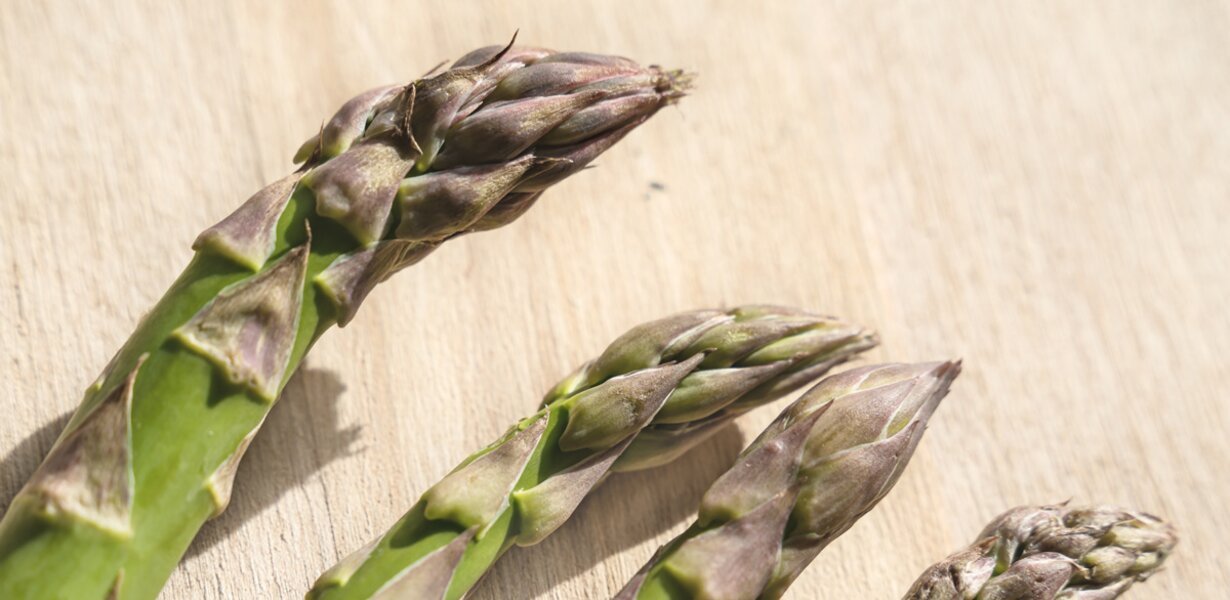There are heroes that are celebrated. There are others that do great things but still have a shadow existence. Glutathione, which, as a powerful antioxidant and potent detoxifier, holds its protective hand over our organism, belongs in the second category. Today, we’re spotlighting this unsung hero.
What is glutathione?
L-glutathione (glutathione for short) is a natural substance found in virtually all human cells. In order to form the vital substance, the body first requires three ingredients: glutamic acid, cysteine and glycine. This amino acid trio makes glutathione a so-called tripeptide from a chemical point of view.
Where is glutathione formed?
In principle, all body cells have the ability to produce glutathione. However, it is most often produced in the liver, in which the vital substance plays a central role. The highest concentrations of glutathione are therefore found in our liver as well as in our blood and immune cells.
Effect & function: What does the tripeptide do in the body and why is it so important?
Now we’re getting to the heart of the matter! Why is L-glutathione so important?
Antioxidant shield
Glutathione is the body’s own antioxidant par excellence. The potent radical scavenger is a master at combatting aggressive oxygen and hydrogen radicals, which can otherwise lead to cell and tissue damage. In addition, glutathione has true team player qualities, as it supports the regeneration of other important antioxidants, such as vitamin C or vitamin E.
Detoxification specialist
Glutathione is a key element in body detoxification. By binding to substances that need to be excreted, it helps the kidneys to excrete these wastes more easily. The vital substance is significantly involved in the detoxification of xenobiotics (foreign, mostly chemical substances such as pesticides, preservatives), heavy metals and harmful mould toxins.
Immune booster
From an immunological point of view, glutathione is also well equipped. On the one hand, the vital substance protects immune cells from oxidative attacks, and on the other hand it increases the activity of various immune cells (e.g. natural killer cells, helper T cells) and thus strengthens the immune system.
Cell division controller
Glutathione also contributes to cell division. Thus, the natural substance ensures healthy cell growth in that it regulates DNA formation and repair and protects protein structure.
Where is glutathione present?
L-glutathione is not only found in our bodies, but food also supplies us with it in different quantities. Seeds and sprouts as well as as asparagus, yeast, liver and meat are considered particularly high in glutathione. However, the glutathione content usually drops sharply due to long storage, processing and heating. For this reason, processed foods usually contain only small amounts of this vital material.
What does “reduced glutathione” mean?
“Nomen est omen” is a well-known proverb, freely translated: “The name is a sign.” But reduced glutathione (GSH) teaches us something better! This is not an inexpensive third-class glutathione, but the active form of the diverse natural substance.
If an active (reduced) glutathione stops a free radical, it itself is oxidised. Since the “sacrificed” glutathione does not like to remain alone, it combines with another oxidized glutathione to form glutathione disulfide (GSSG). In terms of efficacy, this double pack has its hands tied. Nevertheless, the glutathione used is not lost, because a special enzyme – the selenium-containing glutathione reductase – converts the GSSG back into two active glutathione molecules. These can then go back to “radical hunting” immediately.
What influencing factors rob us of active glutathione?
In our organism, glutathione is normally present in 80 to 90% in its active form (GSH). However, this level may decrease during physical stress or illness. This includes:
- Lifestyle habits: excessive consumption of alcohol and tobacco products, use of medication
- Environmental influences: high sun exposure, pollution, ozone exposure
- Diseases: Type 2 diabetes mellitus, inflammations, infections, liver diseases
Application: When should glutathione be taken?
Glutathione can be produced by our organism itself. However, the ability to produce glutathione deteriorates from the age of 40 and decreases after the age of 60 particularly rapidly. At the same time, special stresses, such as inflammation, infections, stimulants and environmental toxins, can also overload our glutathione supplies and lead to glutathione being consumed faster than it is formed. In order to combat this imbalance, a targeted supply of the protective substance can be useful. Studies have shown that glutathione supplements are actually able to increase the levels of glutathione in the body.
Anyone who wants to supplement glutathione should use a high-quality preparation that contains reduced L-Gluthatione in a pure form. Nutrition experts recommend taking glutathione with plenty of liquid between meals.
More glutathione FAQs
What is the daily requirement for glutathione?
Since our body can produce glutathione itself, no daily requirement is defined for the vital substance. However, special stress situations (see above) can mean our body uses more glutathione than usual. In such cases, targeted supplementation may be useful to aid the recovery of the glutathione supply.
Is glutamine the same as glutathione?
Although it sounds similar it is not the same. While glutathione consists of the three amino acids glycine, cysteine and glutamic acid, glutamine is a single amino acid that is needed to build human protein.
Conclusion:
Radical scavenger, detox specialist, immune booster: Glutathione proves to be a multi-level hero. Reason enough to bring the natural talent to general health awareness.
Further reading:
Mikronährstoffcoach: https://www.mikronaehrstoffcoach.com/de/at/mikronaehrstoffe/micronutrient.l-glutathion.html, Zugriff:
Richie J. P. jr. et al. 2015. Randomized controlled trial of oral glutathione supplementation on body stores of glutathione. Eur J Nutr. 54(2):251–263.
Handog E. B. et al. 2016. An open-label, single-arm trial of the safety and efficacy of a novel preparation of glutathione as a skin-lightening agent in Filipino women. Int J Dermatol. 55(2):153–157.
Hagen. T. M. et al. 1990. Bioavailability of dietary glutathione: effect on plasma concentration. Am J Physiol. 259(4 Pt 1):G524–G529.
Sinha, R. et al. 2018. Oral supplementation with liposomal glutathione elevates body stores of glutathione and markers of immune function. Eur J Clin Nutr. 72(1):105–111.
Further literature from the author.









